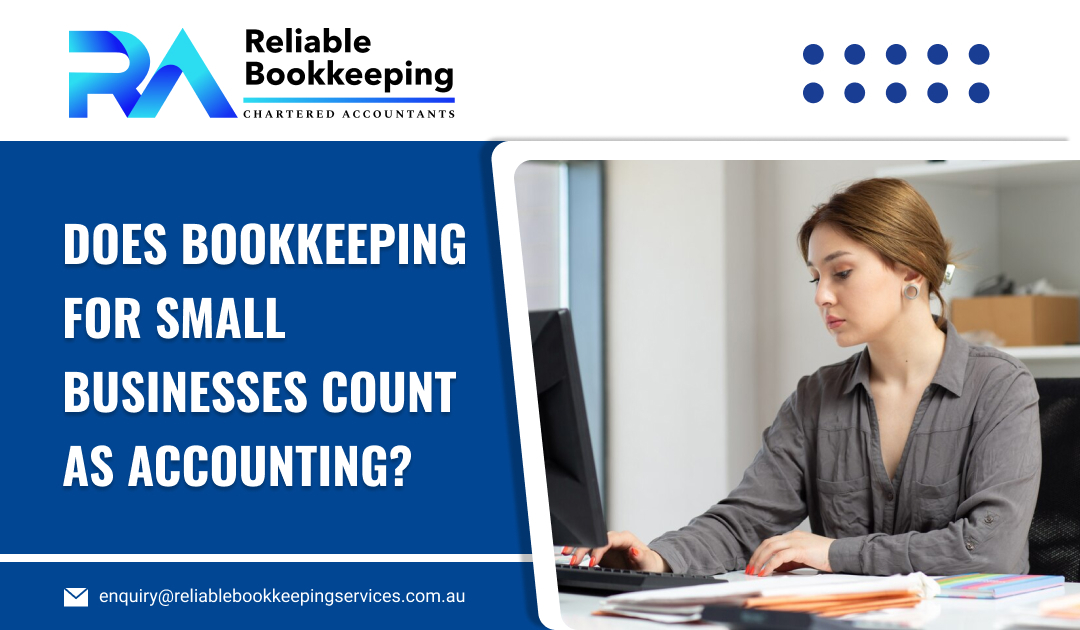Most individuals consider bookkeepers and accountants the same. However, there are differences in the duties and responsibilities of both accountants and bookkeepers. Bookkeepers play a crucial role in establishing the foundation that provides business owners and accountants with the resources they need to create budgets, identify trends, and plan for the future.
What are bookkeeping services for small businesses?
Bookkeeping primarily focuses on recording financial transactions and maintaining up-to-date information. When you choose bookkeeping for small businesses, you can be sure that a bookkeeper will manage the financial records and prepare the necessary information for accountants. For instance, if you employ a bookkeeper, they will regularly log transactions—daily or weekly—to provide a chronological account of your incoming and outgoing payments. The main goal of bookkeeping is to maintain a clear and organised record of all transactions.
What are accounting services?
Accounting involves using data or information provided by professional bookkeepers to analyse, assess, summarise and interpret the financial condition of a business. Accountants use this information and their skills and expertise to create reports that provide business owners with updated information about their financial condition. They can offer financial advice depending on a client’s finances and help individuals and businesses with tax preparation and lodgment services. In this case, a tax agent in Melbourne uses financial reports to work out how much the client owes in tax and prepares and lodges tax returns.
What are the differences between bookkeepers and accountants?
The following are key differences between bookkeepers and accountants:
- Bookkeepers are responsible for identifying, quantifying, recording and categorising financial transactions. In contrast, accountants focus on interpreting, summarising, and communicating the most recent entries in the ledger.
- Financial decisions cannot be solely based on bookkeeping records, but they can be informed by accountant data.
- While bookkeepers are not required to prepare financial statements, accountants are responsible for creating these documents.
- Bookkeepers use bookkeeping software like XERO, MYOB, and QuickBooks, whereas accountants rely on documents such as the Balance Sheet, Income Statement, and Cash Flow Statement.
How do accountants and bookkeepers work together?
Bookkeepers and accountants frequently collaborate to maintain a business’s financial well-being. Bookkeepers lay the groundwork by recording transactions and keeping precise ledgers. Accountants then analyse this data and generate financial statements.
Consistent communication between these roles helps ensure that financial information is accurate and current, allowing accountants to deliver timely and relevant advice to management.
Similarities between bookkeeping and accounting
Both bookkeepers and accountants can play a role in reconciling accounts and ensuring the accuracy of financial records. For instance, they may both examine transaction entries for errors and inconsistencies. Additionally, bookkeepers often help prepare initial financial reports, which accountants then review and finalize.
When should you choose a bookkeeper or accountant?
The use of an accountant and a bookkeeper is necessary for certain types of businesses. Although bookkeeping services in Melbourne include maintaining everyday financial transactions, an accountant is responsible for helping business owners in the decision-making process when evaluating the periodic financial health of a company.
The good financial health of a company is important for business success. A bookkeeper ensures that your records are maintained accurately, helping you with accurate decision-making. Seeking help from an accountant can help you with strategic business planning. They can reduce tax-related stress and help you with finance optimisation, allowing you to focus on the core activities of your business. Avoiding errors is crucial, and involving professionals can prevent you from unnecessary ATO fines and penalties.
The following are some aspects that should be considered when choosing a bookkeeper or an accountant:
- Your business type
- The number of workers working for a company
- Different types of services offered by a company
- The level of expertise used by a company in its operations
- Find a qualified accountant or bookkeeper.
Conclusion
To manage the financial aspects of your company effectively, you must know the difference between accounting and bookkeeping. Reliable Bookkeeping Services are crucial for ensuring that your financial transactions are accurately recorded and your financial statements are updated. If you need bookkeeping services for your business, you can get in touch with us.

